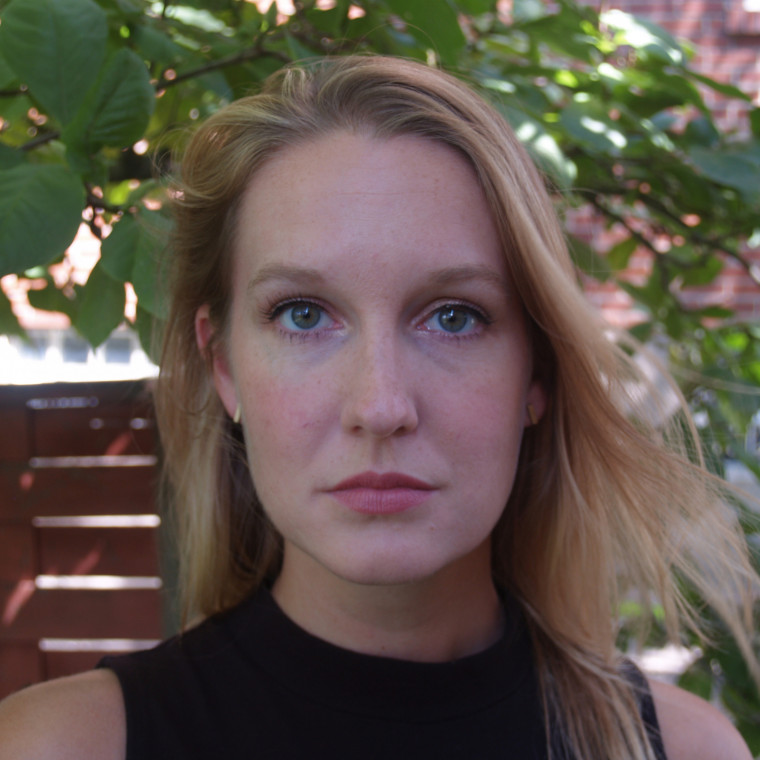Corey Van Landingham

Pronouns
Degree and Class Year
Current City
Major
Extracurriculars
Overseas study
Job Title, Organization
What three words would you use to describe L&C?
Your Time at L&C
What made you want to come to Lewis & Clark?
Initially, to play volleyball and to major in international affairs (but I stopped playing volleyball after my first year and ended up choosing English as my major). It was important that Lewis & Clark was rigorous academically, with small class sizes—and close to my hometown of Ashland, Oregon.
How did you decide on your major?
I came to Lewis & Clark with the intention of becoming an international affairs major, but after one English class on the lyric poem with Associate Professor Jerry Harp during my first semester, I changed my major to English.
Describe the arts-related highlight(s) of each of your years on campus.
- First year: The Lyric Poem, Introduction to Poetry Writing
- Second year: Overseas program in Ecuador/no arts-related highlights
- Third year: Intermediate Poetry Writing
- Fourth year: Senior Seminar on Ekphrasis; Advanced Poetry Writing; Introduction to Art History; Italian Renaissance Art and Architecture; Joanna Klink’s poetry reading; Symposium on LANGUAGE Poetry; the broadsides that an art class made to accompany student poems from Mary Szybist’s Advanced Poetry Writing Course
What was your overall favorite arts-related class? Why?
Advanced Poetry Writing with Morgan S. Odell Professor of Humanities Mary Szybist. She took us all seriously as writers, and challenged us to create poems that would be both meaningful to us and to others. I still return to the demanding, thrilling, diverse reading selection in that coursepack. Mary is a true gem in the L&C community, and she has made a life in the arts possible for so many, myself included.
What was your overall favorite non-arts-related class? Why?
Professor Kurt Fosso’s Literary Theory course. While it took me some time after the course for everything to sink in, it made me see language—see the world—in an entirely different and more engaged and critical way.
Where did you find community on campus?
Through my friends in my dorm, some of whom became friends for life.
If you studied overseas while at Lewis & Clark, how did you choose your program?
I chose the program in Cuenca, Ecuador, because I was considering minoring in Spanish. While the focus on ecology and anthropology was outside my comfort level at the time, that new ken—the micro and the macro attention to the world—has informed my poetry to this day.
What were some of your favorite arts experiences in the Portland arts scene?
Getting to see Mary Szybist read at Reed College; browsing the poetry selection at Powell’s; the wide variety of live music (Rilo Kiley, The Black Keys, Paul Simon, Mos Def, I could go on and on!).
Your Time Since L&C
How did Lewis & Clark prepare you for your job?
The small, discussion-based class sizes and the L&C professors’ dedication to teaching and mentoring prepared me for the intensity of graduate classes, and has informed my own pedagogy ever since. The care for and attention to individual students has also been something I’ve wanted to model. My father died right before my senior year at L&C, and Professors Karen Gross, Mary Szybist, and Jerry Harp were kind and attentive, while still pushing me to think deeply. The interdisciplinary possibilities also opened new worlds for my poetry, and have greatly informed how I write to this day. In job talks, I also mention Associate Professor Ben David’s art history classes and how they taught me history, myth, and religion in thrilling new ways. They taught me how to pay exquisite attention to the world around me, and how to see structures and form all around me.
Now that you’ve been out of college for a while, what would you say is the most important thing you learned at Lewis & Clark?
It might sound cheesy, but the most important thing I learned is that art matters, that it has always mattered, and that it will continue to matter.
What are your career goals?
I have completed a lot of my career goals, for which I largely have the mentorship of my professors at Lewis & Clark to thank. I have a job I love, teaching undergraduate and graduate poets. I have published multiple books of poetry, and I get to help students complete their own first books. One goal I have is to hold one of my students’ books in my hands for the first time. Because the real goal is to pass along what I learned at L&C to my students for decades to come—to teach them how art helps us better see the world, helps us better see ourselves.
More Admissions Stories
Admissions is located in Frank Manor House on the Undergraduate Campus.
MSC: 32
email admissions@lclark.edu
voice 503-768-7040
fax 503-768-7055
Vice President of Admissions and Financial Aid
Eric Staab
Admissions
Lewis & Clark
615 S. Palatine Hill Road MSC 32
Portland OR 97219

